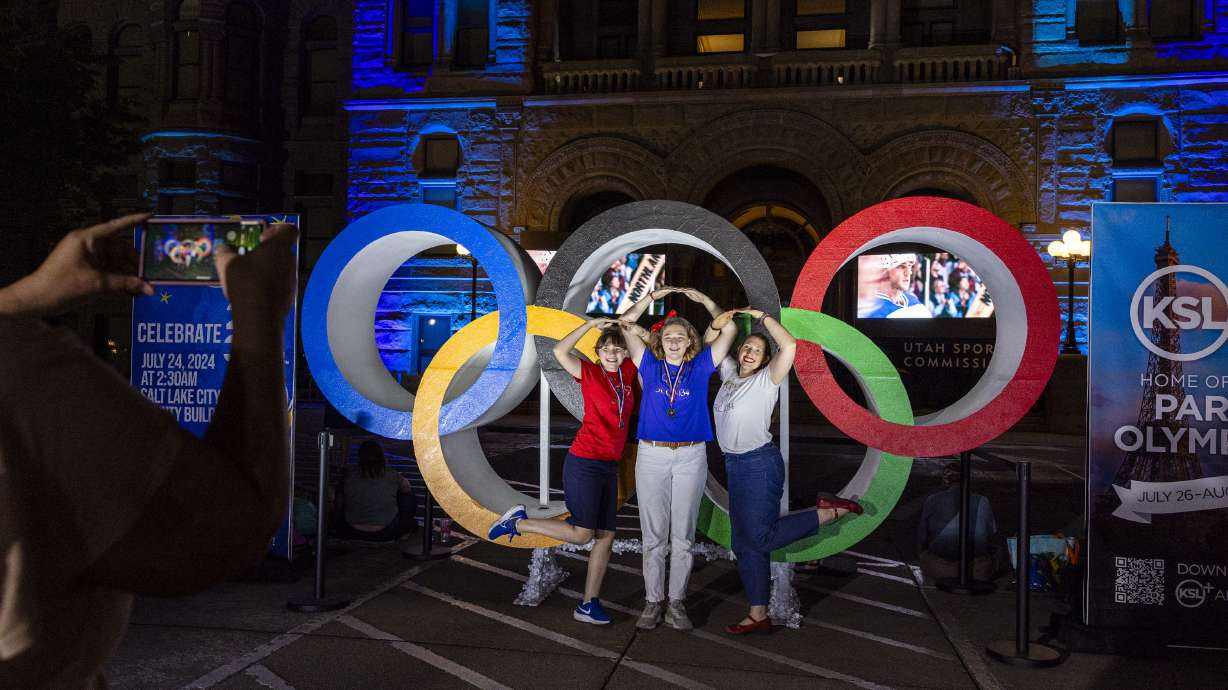Estimated read time: 3-4 minutes
This archived news story is available only for your personal, non-commercial use. Information in the story may be outdated or superseded by additional information. Reading or replaying the story in its archived form does not constitute a republication of the story.
- SB336 and SB333, targeting stadiums and Olympic venues, advanced in the Utah Legislature.
- SB336 adjusts tax and land mechanisms for Utah Fairpark Area, while allowing for multiple stadiums.
- SB333 proposes funding improvements for 2034 Olympic venues through local tax zones.
SALT LAKE CITY — A pair of bills targeting stadiums and sports venues, including improvements to 2034 Winter Olympic venues, advanced in the Utah Legislature as this year's legislative session winds down.
Members of the Senate Economic Development and Workforce Services Committee voted 2-1 to support SB336 and 4-0 to support SB333, sending them to the Senate floor for a full vote.
Fairpark stadiums
SB336 would mostly clean up a bill from last year that created the Utah Fairpark Area Investment and Restoration District. It adjusts a tax levied for public infrastructure while also allowing Salt Lake City to receive a portion of tax revenue because it will continue to provide emergency and other services under an agreement outlined in last year's bill.
It adds a "mechanism" to add more land to the district should land be purchased in the area, while also opening the door for more than just a Major League Baseball stadium by tweaking language to allow for multiple stadiums. Benn Buys, the district's director, said the latter — while interesting — is mainly aimed to allow for "flexibility." There aren't any active plans for a stadium.
"Should the opportunity arise, we love the idea of being the home of sports on the west side," he said.
Stadiums or not, Sen. Scott Sandall, R-Tremonton, the bill's sponsor and also the district board's director, said he believes the district will still be beneficial for areas in and around the Utah State Fairpark.
Salt Lake City leaders, in December, approved a rezone of the "Power District" land next to the Fairpark. It allows for new heights and density through mixed-use development that the Larry H. Miller Company wants to build next to a potential ballpark. The company is also leading the state's push for a major league team.
"I'm looking forward to seeing something really, really special on the west side with the investment that's coming there," Sandall said. "The amount of investment that's going to be placed in that area is going to be monumental."
Olympic venue funding
Meanwhile, cities and counties might have a new way to fund improvements to a handful of sports venues through SB333. The bill seeks to make sure that the state's sports venues — particularly Olympic venues — continue to produce "maximum revenue for the state," said Sen. Jerry Stevenson, R-Layton, the bill's sponsor.
The bill would allow cities and counties to opt into a "major sporting event venue zone" for "a site, arena, or facility along with supporting or adjacent structures" that has been proposed to be used by the Salt Lake City-Utah Committee for the Games. If they choose to create a zone, they can apply to the Governor's Office of Economic Opportunity for final approval.
Zones could collect up to 75% of the property tax increment collected and 100% of local sales and use tax over 25-40 years to cover the cost of projects. Summit County would be allowed to impose a resort communities sales and use tax under the bill.
"This tool helps create a targeted funding source for those improvements," Stevenson said. "This uses local tax dollars at the option of the local government ... to facilitate these improvements. There's no local preemption in this bill."
He told reporters on Tuesday that it wasn't about "football, baseball, hockey (or) basketball" but "infrastructure that services those facilities" like water lines, sewer systems or even low-income housing projects that could be used by Olympians. The committee unveiled 13 venues it planned to use in 2034 last year, but lawmakers said it could help with new facilities.
Both bills must be passed by the Senate and House of Representatives by March 7 before going into law, barring a veto by Gov. Spencer Cox. If approved, SB336 would go into effect on May 7, and SB333 would go into effect on Jan. 1, 2026.










